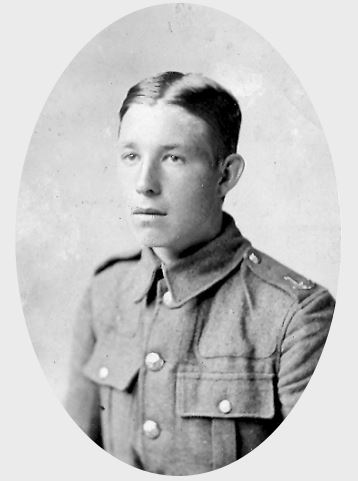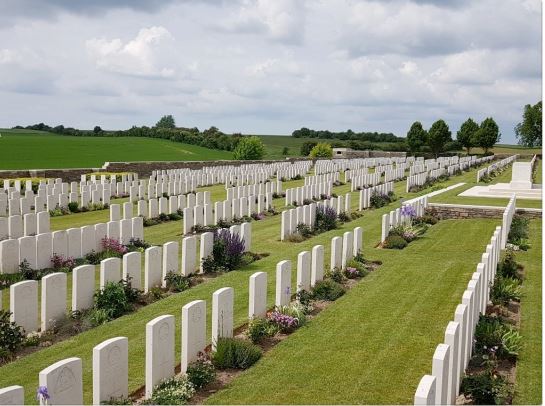1st Battalion, Gloucestershire Regiment

Alfred Joseph Fletcher was born in Tewkesbury on 23 April 1895 to John Fletcher, a Stableman/ Groom, and Mary Ann Fletcher (formerly Booth). In 1901, the family of five daughters and two sons was living in Barton Street. By 1911, John was working as a Labourer and they were living in High Street, Tewkesbury. Alfred was educated at the Council Schools in Chance Street, after which he became a Blacksmith with Milners, who held him in ‘high esteem’; subsequently, he worked for Thomas Walker, a fairground ride manufacturer. Alfred worshipped at the Congregational Church
in Barton Street.
Alfred’s obituary in the Tewkesbury Record claimed that he was ‘one of the few remaining Territorials’. He probably volunteered in late 1914, spending up to two years in home service battalions before being sent overseas sometime in 1916 when he was posted to the 1st Battalion, Gloucestershire Regiment. The battalion was part of 3rd Infantry Brigade in the 1st Division, one of the first British formations to move to France in 1914, landing at Le Havre on 13 August.
The obituary also reported that Alfred was gassed and returned home for a period of five weeks for treatment at Mitton Red Cross Hospital. Whilst there, he was entertained by a choir which included his niece; his smile and wave was the ‘last memory of him’ that the girl remembered. She did recall that, when he returned in the summer of 1918, he was acting as a dispatch rider but was wounded by a sniper and died of his wounds on 27 September 1918. However, the family’s version of events conflicts with both a newspaper report of the time that he was ‘killed by a shell’ and by the battalion’s War Diary. Before Alfred was killed on 29 September, the situation was reported as quiet, with the battalion mainly in support or reserve; no casualties were incurred during the previous week. Late on 28 September, the battalion moved to the Gricourt area, north of St Quentin, in readiness for an attack the following day; this was part of a bigger offensive known as the Battle of the St Quentin Canal, an attempt by the British Army to breach the supposedly impregnable Hindenburg Line. The attack by the 1st Gloucesters on 29 September was successful as was the overall battle; the War Diary comments at the end of the day that ‘By dark both second and third objectives had been gained. Casualties were 8 Other Ranks killed and 47 wounded’.
Private Alfred Joseph Fletcher was reported as killed in action on 29 September 1918 and it seems most likely that he was one of the eight casualties referred to in the War Diary for that day. He is buried in Bellicourt British Cemetery, which was created after the battle.

Bellicourt British Cemetery
